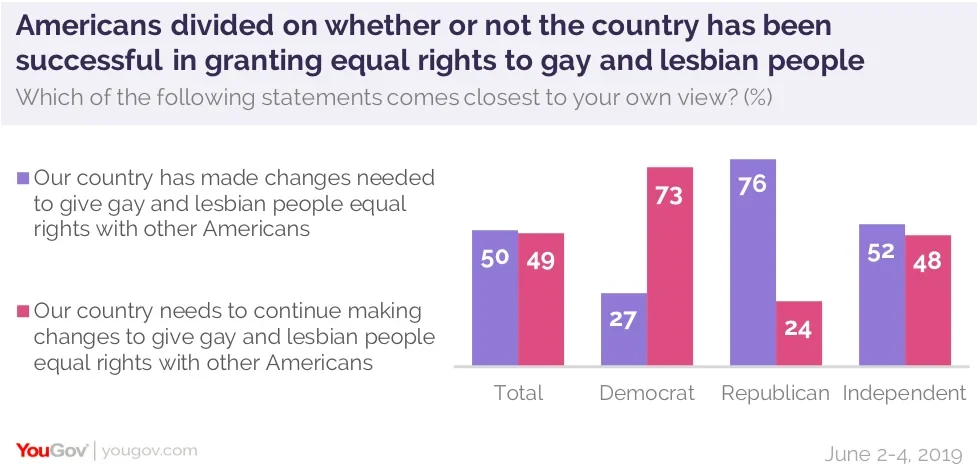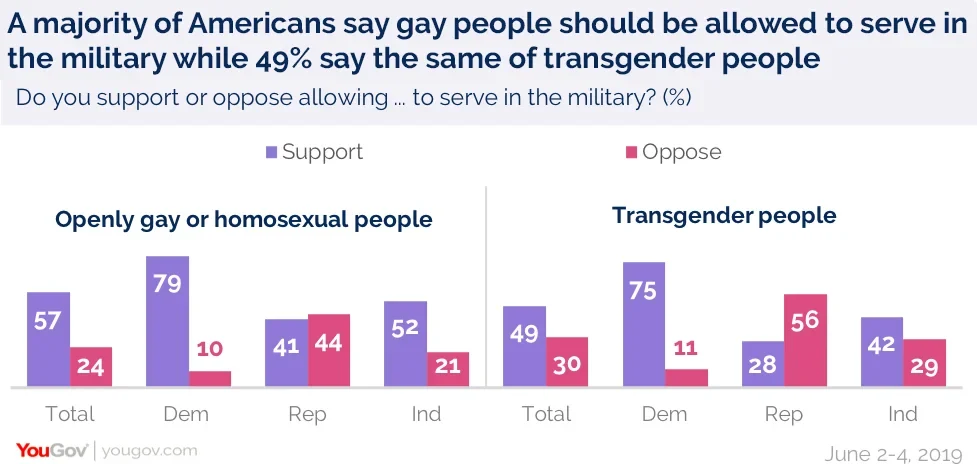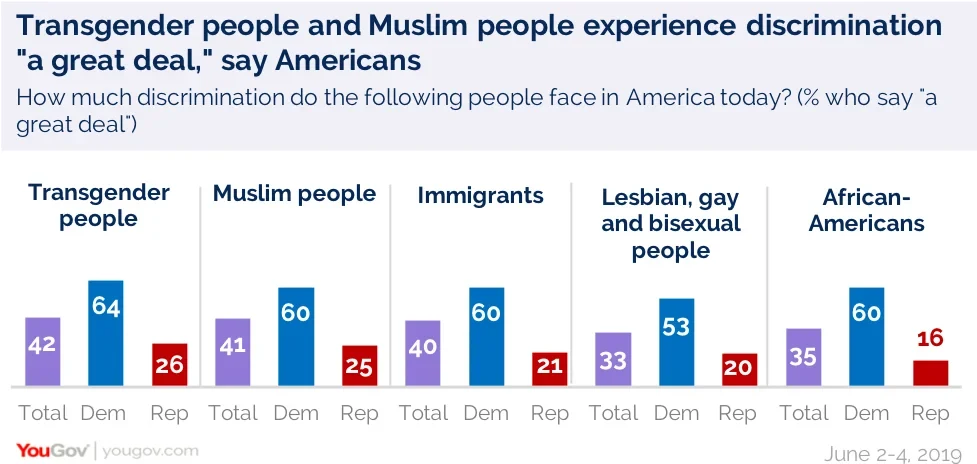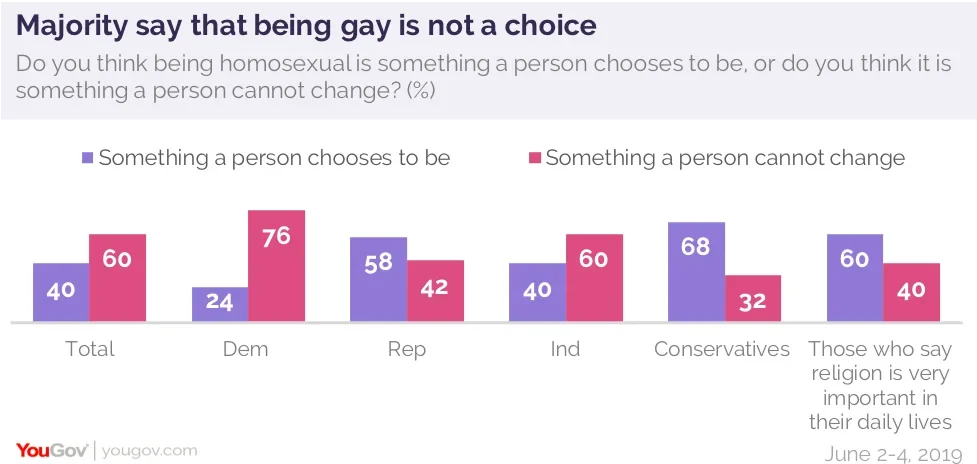Fifty years ago, the Stonewall Riots were a landmark in the struggle for gay and lesbian rights in the United States. Most in the latest Economist/YouGov Poll think that the status of gays and lesbian has improved since the time of Stonewall. But for half the country, the battle is not yet over: they believe the country needs to continue making changes in order to ensure equal rights for gay and lesbians.

Perceptions of gay rights are often political ones. For three-quarters of Republicans (and for a majority of men) the gay rights struggle is over, and the country has made all the changes necessary to provide equal rights. Democrats agree with Republicans that things are better today for gays and lesbians (69% overall say they are), but three in four Democrats believe more needs to be done. Homophobia is still seen as a problem for 59% of the public.
The focus today is on different issues. It is now a question of rights for transgender people, not just for gays and lesbians. Today, most adults know someone who is gay or lesbian, with personal contact not a matter of partisanship: Republicans and Democrats are equally likely to know a gay or lesbian person. When it comes to jobs, Republicans and Democrats agree that an employer should not be able to fire an employee for being gay.
However, despite the gains in gay rights, 59% believe homophobia is still a problem. More than three-quarters of Democrats say this, twice the percentage of Republicans who agree.
Transgender people are not personally visible to most Americans. Only 29% say they know someone who is transgender. Younger adults under the age of 30 are most likely to know someone transgender (42%). Just 16% of those 65 and older do. There is more support for allowing openly gay people to serve in the military than there is for allowing transgender people to serve.

Republicans are divided on allowing gays to serve openly in the military, but by two to one they oppose transgender service. In this they agree with the position of the Trump Administration. Veterans (nearly half of whom are 65 or older, and who are more likely to identify as Republicans than Democrats) divide closely on gays serving openly in the military (47% to 44%), but they oppose transgender service 47% to 37%.
All groups oppose allowing employers to fire transgender employees who wear clothing matching their gender identity, and by two to one, Americans support ENDA, the Employment Non-Discrimination Act, legislation which would prohibit discrimination based on sexual orientation or gender identity by employers with 15 or more employees. Democrats support the legislation by almost four to one, Republicans support it by a smaller margin, 44% to 33%.
Americans recognize the difficulties transgender people face in this country. More say they, along with Muslims and immigrants, face a “great deal” of discrimination today. Fewer say that about gays, lesbians and bisexuals, African-Americans and other groups.

More Democrats than Republicans perceive a great deal of discrimination in nearly all cases.
The struggle over gay rights is hampered by a perception held by 40% of the country that homosexuality is a personal choice and not an orientation that cannot be changed. Polls conducted as recently as 2003 found as many people labeling homosexuality as a choice as calling it a fixed characteristic, but that has changed in the last ten years for most. However, today majorities of Republicans, conservatives, and those for whom religion is very important in their daily lives view homosexuality as a personal choice.

Those who look at homosexuality as a choice overwhelmingly regard same-sex relations as morally unacceptable. Only 25% think they are morally acceptable. Those who look on homosexuality as a fixed characteristic that can’t be changed disagree: 81% of them believe same-sex relationships are morally acceptable. On nearly all questions, believing that homosexuality is a choice has a large impact on answers. Fewer who think this see discrimination against LGB people, most oppose the presence of both transgender and gay and lesbian people in the military, and just one in five believe there needs to be more movement in the direction of gay rights.
See full toplines and tables results here.
Image: Getty







